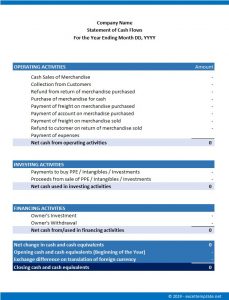
Accurate budgeting drives informed decision-making and ensures that financial plans support property management objectives. Financial journals offer insights into the latest research in real estate types of business transactions cash credit internal external accounting. Subscribing to these journals is crucial for continuous learning. For real estate professionals, financial journals are indispensable.
The best decision an entrepreneur can make is to use cloud-based accounting software since it allows them to access financial information anytime, anywhere. Deskera, for instance, provides an entirely fresh perspective on accounting. It’s a platform that not only lets you have all your accounting elements in one place but also enables you to keep a tab on each of them. The task of managing bookkeeping can sometimes seem overwhelming. Accounting for real estate is crucial to maintaining financial statements and identifying growth potential. Mismanaged financial records can lead to significant financial discrepancies.
Property Management Firms and Operational Efficiency
Regular reviews ensure that businesses leverage tax planning effectively. Accurate tax planning ensures that businesses optimize their tax strategies and remain compliant. Recognizing and adhering to IFRS ensures that real estate businesses maintain global financial reporting standards. It provides a framework for businesses operating in multiple countries. Regular training sessions ensure that professionals stay updated with IFRS guidelines.
Let’s Discuss Your Real Estate Accounting Needs
Ultimately, compliance with accounting standards ensures that financial statements are comparable and transparent. Adjusting entries ensure that financial statements reflect accurate financial data. Prepayments, like advance rent, and accruals, like unpaid utility bills, require adjustments. Real estate accounting involves making these adjustments at period-end.

Utilizing Modern Accounting Tools
One of the chief reasons is to provide an accurate and clear picture of the overall health of a business. Another reason is for tax purposes and to quickly assemble the required documents for an audit if one’s business is selected. Managing real estate is a local and regional game, meaning that rules and requirements intuit ein number vary based on where you live and work.
- Real estate accounting provides tools to track vendor payments and ensure timely scheduling.
- When a tenant rent payment hits your bank account, Stessa updates your income statement.
- Developers and property management firms utilize accounting to plan and optimize their operations.
- Regular financial reviews ensure that rental incomes are optimized.
- Accounting is an important part of every industry and real estate is no exception.
Accurate Reporting Procedures
Regular depreciation reviews ensure that assets are valued correctly. Moreover, understanding the methods and implications of depreciation is crucial. It ensures that properties are consistently depreciated, reflecting their true wear and tear. Property valuation is a dynamic process, influenced by various market factors. Real estate accounts must be adept at understanding these variances. Accurate property valuation ensures that assets are correctly represented in financial statements.
Training sessions offer insights into the nuances of year-end summaries. For real estate professionals, these summaries are crucial for annual planning and strategy refinement. Consultants in the real estate sector provide insights into market trends and investment strategies. Real estate accounting offers them tools to analyze property valuations, rental incomes, and market demand. Regular financial reviews ensure that their analyses are up-to-date and relevant. Training sessions and workshops further enhance their analytical skills.
Recognizing this depreciation is volunteer contract agreement essential for accurate financial reporting. It impacts the property’s book value and the profit and loss statement. Different properties might have varying depreciation rates, influenced by their type, use, and location.
It’s a critical aspect of successful real estate accounting that supports growth and sustainability. Properties should be valued accurately for transparent financial reporting. Inaccurate asset valuation can distort balance sheets and mislead stakeholders. Training sessions offer insights into asset valuation techniques. For real estate professionals, accurate asset valuation is crucial.
It plays a crucial role in optimizing investment returns and maintaining liquidity. Effective systems are the backbone of streamlined real estate accounting. By leveraging real estate accounting software and aligning financial activities with property management goals, businesses can achieve unparalleled efficiency. Continuous improvement and adaptability further enhance this efficiency. Lease agreements are contractual commitments between property owners and tenants. Accurate documentation of these agreements is crucial for financial clarity.
